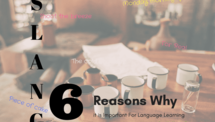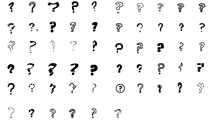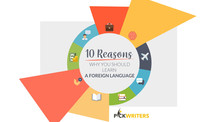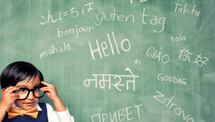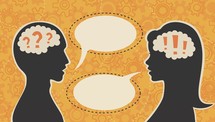What Is Social Media Language and How Does It Differ From English?
Social media language is a way of communication people use to express themselves on the Internet, particularly on discussion platforms. When the Internet just appeared, its users kept speaking as they did in real life, but with time, this practice evolved. A whole new kind of language appeared, along with its unique words, punctuation, and symbols. Since English dominates social media, it sets norms and trends in this sphere, and many of them have affected the language itself to a huge extent. Some of these effects are positive, others not so much. Let’s learn what they are together.
Positive Effects Social Media Has on English
Social media languages have definitely made English easier. Grammar doesn’t mean much here: there are ways of voicing your ideas quickly and with no sweating over what tense or preposition to use. Unless you are contacting professionals to ask them for USCIS translation services or doing business, everyone will understand you even if you omit “am/is/are,” write “have” instead of “has,” forget about inflections, etc. No one will bother with reading you a lecture on what you’ve said wrong.
So, how has social media changed communication? It removed the stressful aspect of fluency and filled it with ease and speed, letting online users have fun when they interact with each other. These days, people focus on content, not on the way it’s presented. Paragraph breaks and overall coherency are all that’s needed for your communication to thrive. But unfortunately, these same effects can be viewed in a more negative light, too.
Negative Effects of Social Media on Language
Sure, informal language is great, but what are the limits? These days, it is getting increasingly difficult to find people who can write fluently because of social media. Students start facing an increasing number of problems in schools and colleges since they cannot complete their assignments properly. The reason for it is obvious: most people, especially the youth, do most of their writing online. Constant misspellings, use of abbreviations, contractions, and informal words are extremely commonplace on forums and discussion platforms. This is how social media affects writing skills, and the results are frustrating both for students and their professors.
Another negative side is a misuse of words and usage of slurs that many online users don’t recognize as offensive. Internet is gaining volume every day: people from all possible walks of life start interacting with each other. This includes individuals of different races, sexualities, religions, and so on. On the one hand, it’s great, but on the other, they interact by using social media vocabulary that they don’t always understand.
Few of them bother to look up the word’s meaning: if they saw it in a certain context, that’s it, they are going to replicate it. Racist slurs and homophobic expressions started flourishing anew simply because it’s too difficult to understand language nuances when you don’t hear a person’s tone and don’t understand context fully. For example, many members of LGBTQ community jokingly refer to each other as “fruity,” but when straight people do the same, it becomes offensive. Social media blur these lines, igniting hostility and misunderstandings.
Social Media and Language in Real World: What Is the Link?
Internet language affects our everyday communication, too. Some terminology we use online comes to haunt us in verbal conversations. Phrases like “Google something,” “she unfriended me,” “he’s a troll,” “it’s a new buzzword,” “lmao” and others start sounding left and right. Lesser strictness of grammar follows the same principle: people freely omit some words when they are talking. This creates a certain generational gap. Those who don’t use social media as often, which is mostly older folks, begin to lose the ability to follow some conversations. Many of them admit that listening to modern teenagers is like listening to foreigners who speak another language. This is a big social media effect on language.
Like written forms of communication, verbal one also suffers from online language because sometimes people fail to differentiate between contexts and keep misunderstanding each other in real life. Let’s compare two hypothetical situations. You are a developer in search of good game localization services: you are eager to share your creation with others because this is your passion. You could use any kind of terminology here, including specialized slang and abbreviations, and people who’ll be working on your game are going to understand you because you both have Internet in common. They know this industry inside out.
But if you’re a businessman looking for Arabic translation services, you’ll have to be much more careful with your speech. Nuances matter: in this case, you’ll need to talk in an official and concise manner to make sure that the firm got all your demands correctly. Usage of any slang would only be confusing. Problems with context and inability to always understand how to talk to which people complicate the ease that Internet language brings otherwise.
Read also: How can you pick the best Hebrew translation services for your needs.
Examples of Vocabulary Social Media Has Brought to Us
What is social media language? Let’s see it in practice by taking a look at some common and interesting words that were born on the Internet! You might know some of them, but some could surprise you! Just to be safe, we provided brief explanations with examples.
· Click-bait. Have you ever seen titles that made you so interested that you clicked on them, and then it turned out to be some meaningless hearsay? “Only one vaccine works against COVID-19, and that is…” Yeah, that’s a click-bait. Those who create them generate money or views, so they make up misleading but very intriguing headlines that stimulate people’s curiosity.
· Mash-up. When people make edits or collages from the existing content, combining different characters or events into one composition, it’s called a mash-up.
· Hater. These are people who try to drown everyone in toxicity. For example, you found the best Korean translation services and decided to leave your review, but when you accessed some neutral platform, you saw someone spamming it with intense negativity, pouring dirt on the company, and describing things that are the opposite of what you yourself experienced. Negative comments are natural, but overblown hostility makes one a hater.
· DM me. ‘DM’ stands for ‘direct message’. So, if someone asks you to DM them, it basically means, “Send me a private message.” This example underlines changes in English language over time in terms of abbreviations and grammar.
· AMA. ‘Ask Me Anything’ sessions take place on platforms like Reddit and Tumblr. A person who interests the public sets a date when they’ll be answering different questions. For instance, many people had questions for James Kolar, the author of ‘Foreign Faction’ book written about JonBenét Ramsey case. He organized AMA on one of Reddit subs, giving long-awaited answers that triggered people’s interest in the crime.













